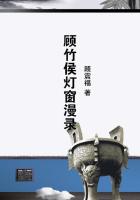"Whoever will undergo the pain," says Mr. Wakefield, "of witnessing the public destruction of a fellow-creature's life, in London, must be perfectly satisfied that in the great mass of spectators, the effect of the punishment is to excite sympathy for the criminal and hatred of the law. . . I am inclined to believe that the criminals of London, spoken of as a class and allowing for exceptions, take the same sort of delight in witnessing executions, as the sportsman and soldier find in the dangers of hunting and war. . . I am confident that few Old Bailey Sessions pass without the trial of a boy, whose first thought of crime occurred whilst he was witnessing an execution. . . And one grown man, of great mental powers and superior education, who was acquitted of a charge of forgery, assured me that the first idea of committing a forgery occurred to him at the moment when he was accidentally witnessing the execution of Fauntleroy. To which it may be added, that Fauntleroy is said to have made precisely the same declaration in reference to the origin of his own criminality.
But one convict "who was within an ace of being hanged", among the many with whom Mr. Wakefield conversed, seems to me to have unconsciously put a question which the advocates of Capital Punishment would find it very difficult indeed to answer. "Have you often seen an execution?" asked Mr. Wakefield. "Yes, often." "Did it not frighten you?" "No. Why should it?"
It is very easy and very natural to turn from this ruffian, shocked by the hardened retort; but answer his question, why should it?
Should he be frightened by the sight of a dead man? We are born to die, he says, with a careless triumph. We are not born to the treadmill, or to servitude and slavery, or to banishment; but the executioner has done no more for that criminal than nature may do tomorrow for the judge, and will certainly do, in her own good time, for judge and jury, counsel and witnesses, turnkeys, hangman, and all. Should he be frightened by the manner of the death? It is horrible, truly, so horrible, that the law, afraid or ashamed of its own deed, hides the face of the struggling wretch it slays; but does this fact naturally awaken in such a man, terror--or defiance? Let the same man speak. "What did you think then?" asked Mr. Wakefield.
"Think? Why, I thought it was a--shame."
Disgust and indignation, or recklessness and indifference, or a morbid tendency to brood over the sight until temptation is engendered by it, are the inevitable consequences of the spectacle, according to the difference of habit and disposition in those who behold it. Why should it frighten or deter? We know it does not.
We know it from the police reports, and from the testimony of those who have experience of prisons and prisoners, and we may know it, on the occasion of an execution, by the evidence of our own senses; if we will be at the misery of using them for such a purpose. But why should it? Who would send his child or his apprentice, or what tutor would send his scholars, or what master would send his servants, to be deterred from vice by the spectacle of an execution?
If it be an example to criminals, and to criminals only, why are not the prisoners in Newgate brought out to see the show before the debtors' door? Why, while they are made parties to the condemned sermon, are they rigidly excluded from the improving postscript of the gallows? Because an execution is well known to be an utterly useless, barbarous, and brutalising sight, and because the sympathy of all beholders, who have any sympathy at all, is certain to be always with the criminal, and never with the law.
I learn from the newspaper accounts of every execution, how Mr. So-
and-so, and Mr. Somebody else, and Mr. So-forth shook hands with the culprit, but I never find them shaking hands with the hangman. All kinds of attention and consideration are lavished on the one; but the other is universally avoided, like a pestilence. I want to know why so much sympathy is expended on the man who kills another in the vehemence of his own bad passions, and why the man who kills him in the name of the law is shunned and fled from? Is it because the murderer is going to die? Then by no means put him to death. Is it because the hangman executes a law, which, when they once come near it face to face, all men instinctively revolt from? Then by all means change it. There is, there can be, no prevention in such a law.
It may be urged that Public Executions are not intended for the benefit of those dregs of society who habitually attend them. This is an absurdity, to which the obvious answer is, So much the worse.
If they be not considered with reference to that class of persons, comprehending a great host of criminals in various stages of development, they ought to be, and must be. To lose sight of that consideration is to be irrational, unjust, and cruel. All other punishments are especially devised, with a reference to the rooted habits, propensities, and antipathies of criminals. And shall it be said, out of Bedlam, that this last punishment of all is alone to be made an exception from the rule, even where it is shown to be a means of propagating vice and crime?
But there may be people who do not attend executions, to whom the general fame and rumour of such scenes is an example, and a means of deterring from crime.
Who are they? We have seen that around Capital Punishment there lingers a fascination, urging weak and bad people towards it, and imparting an interest to details connected with it, and with malefactors awaiting it or suffering it, which even good and well-















